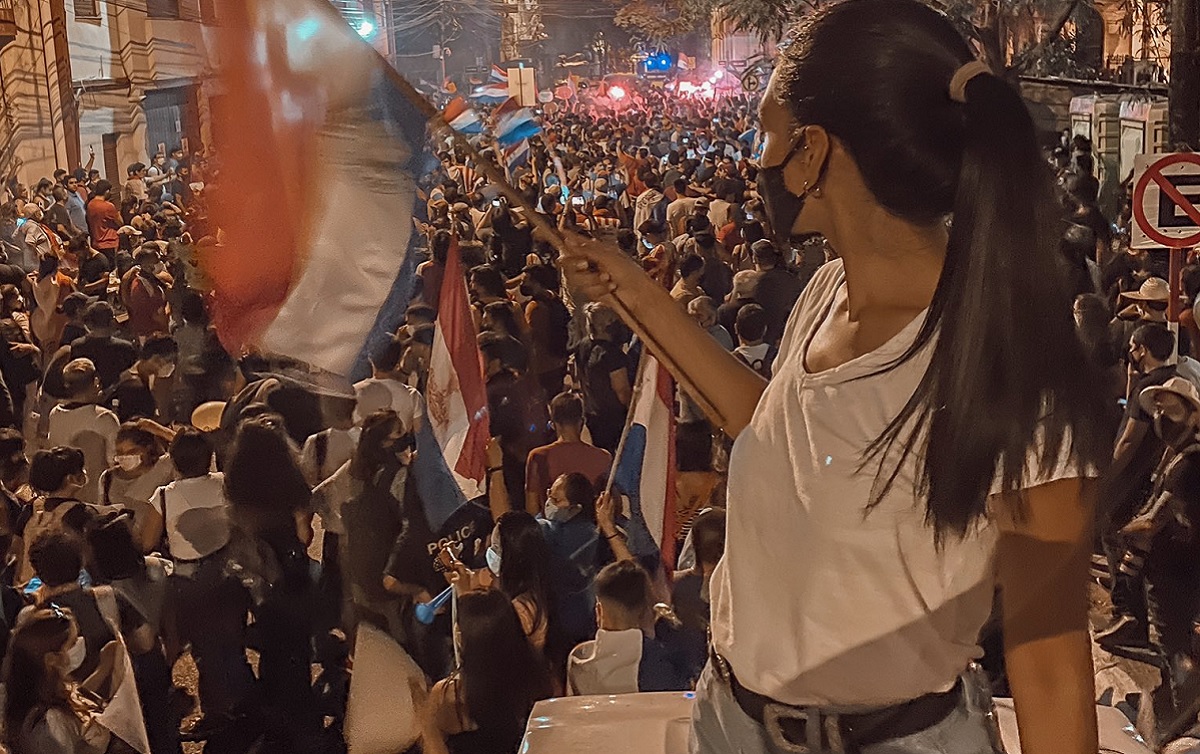RIO DE JANEIRO, BRAZIL – In early March, Elena had to take her diabetic father with symptoms of Covid-19 to a public hospital. She had to rule out the private clinic, as she wished, because prior to the hospitalization they asked for a deposit of 30 million guaranis to enter, about US$4,900.

“You betrayed me, you brought me here, they are going to kill me in this place,” her father told her when she arrived. “And all his fears came true,” laments Elena, who gives a fictitious name for fear of reprisals. “We went into the emergency room. They separated me from him and gave me the phone number of a pharmacy to buy the things they were going to ask me for,” she says.
At the hospital they asked for medicines, as well as basic things like absorbent cotton, adhesive tape and gauze. Elena’s family has spent approximately 15 million guaraníes, which they have had to borrow.
“Do you know how I feel? A lot of insecurity, I am afraid to go to a public hospital, because of the feeling that they do everything wrong, that only if you have money do they attend you, if not, you die,” says Elena. She and the rest of her family were also infected with covid-19, and although they are well, they are afraid of having to take care of another sick person at any moment.
This Sunday they have organized a “pollada” to sell food and raise funds to pay for her father’s treatment, a custom as Paraguayan as drinking cold mate.
The financial frailty of Elena’s family is no exception in Paraguay: seven out of ten Paraguayans earn less than the minimum montly wage of two million guaraníes (US$285) and 46% of the population lives on irregular jobs with no social security. This is a long-standing reality, but the worsening of the crisis resulting from the pandemic has put an end to the patience of many.
“In the case of health and social protection, the crisis had been going on before,” says Verónica Serafini Geoghegan, an economist at the Center for Analysis and Dissemination of the Paraguayan Economy (Cadep), “but the pandemic exacerbated the problems. Corruption and the absence of punishment were added.”
“In addition, there are the historical inequalities and privileges. According to Latinobarómetro, 87% of Paraguayans believe that the government governs for the powerful. Poor quality of life, privileges for a few, corruption and distrust are factors that hinder any possibility of political legitimacy. And in a context of extreme vulnerability due to Covid-19, the situation took an unexpected but predictable turn,” Serafini explains.
In the last two weeks, Paraguay has experienced unprecedented moments: an almost spontaneous rally of 10,000 demonstrators as well as daily protests and demonstrations even in front of the house of President Mario Abdo Benítez in the capital.
In the midst of the social tension, there was a failed impeachment attempt against Abdo Benítez, which ended with the headquarters of the ruling Colorado Party in flames.
The anger and protests were not only against the president, son of dictator Alfredo Stroessner’s private secretary, but against his entire party. The National Republican Association (ANR) or Colorado Party, the formation that cemented Latin America’s longest dictatorship (1954-1989), has controlled all branches of government since the beginning of democracy, except between 2008 and 2012 when the opposition ruled.
Battle in the Colorado Party
The government of Abdo Benítez already had a crisis that almost cost him a parliamentary impeachment. It happened in July 2019, after secret negotiations with the Brazilian government over the extension of the treaty governing energy generated by Itaipu, the dam with the largest production in the world, which in 2023 must be updated.
When the opposition denounced the secret negotiations, part of the Colorado Party itself confronted Abdo Benítez, who represents the more traditional wing.
It was the Honor Colorado movement, led by former President Horacio Cartes, a businessman from the Brazilian border who owns the largest corporation in the country, the Cartes Group, which includes banking, media, cattle ranches, beverages, tobacco, and advertising. According to Wikileaks, before becoming president, Cartes was closely investigated and spied on by the CIA, DEA and FBI for alleged money laundering.
The crisis over Itaipu, the country’s flagship, outraged both the opposition and Cartes’ nationalist supporters, who accused the president of a “sell-out” with Brazil for negotiating clauses that could prejudice Paraguay in energy distribution.
Abdo Benítez avoided impeachment after negotiating with Honor Colorado, and his hands were tied for the future. Thus the current crisis was reached, with the constant threat from Honor Colorado spokesmen that they can remove him whenever they want.
“We are not going to stop until he resigns, we are protesting here because he is a false president, the one in charge is Cartes and he keeps giving orders,” says Melisa Riveros, 18, who came from the outskirts of Asunción to protest in front of Cartes’ huge mansion, located on a main avenue in the city.
The health crisis, meanwhile, continues unabated. The president has already changed his health minister, while vaccines are arriving in dribs and drabs.
Paraguay has only received 60,000 vaccines for Covid-19, for a population of seven million people, at a time when the pandemic is at its peak.
Source: El Pais

